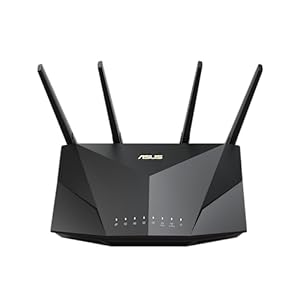A Japanese startup’s second attempt to launch its solid-fuel rocket ended in chaos, with Kairos spiraling downwards a few minutes after lift off. The launch failure marks another setback for Japan’s private space industry after a series of explosive rocket attempts earlier this year.
Japan’s Space One launched its Kairos rocket on Wednesday from the company’s Spaceport Kii launch pad in Kushimoto, Wakayama Prefecture. The rocket appeared to be flying normally at first, but things quickly started to fall apart. About two minutes after liftoff, Kairos appeared to lose attitude control, and began tumbling its way downwards. The rocket self-destructed after detecting abnormalities in the first-stage engine nozzle control and the rocket’s trajectory, Space One director Mamoru Endo told reporters during a post-launch briefing, according to Reuters.
Kairos was carrying five small satellites from the Taiwan Space Agency, and Japanese companies Lagrapo, Space Cubics, and Terra Space, as well as a fifth customer that wished to remain anonymous.
This was Space One’s second attempt at becoming Japan’s first commercial firm to independently place satellites in Earth orbit (Japan’s space agency, JAXA, has accomplished this feat many times, working with firms like Mitsubishi Heavy Industries). The startup first attempted to launch Kairos in March, but the launch vehicle exploded mere seconds after clearing the tower in Wakayama prefecture. The rocket’s autonomous self-destruct system was set off due to anomalous flight settings about five seconds after launch. Kairos was carrying an experimental satellite for the Japanese government.
The three-stage Kairos rocket, equipped with solid-fuel engines and a liquid-fuel post-boost stage, is designed to deliver payloads of up to 550 pounds (250 kilograms) to low Earth orbit. With its 59-foot (18-meter) tall rocket, Space One is hoping to compete with companies like SpaceX and Rocket Lab by delivering satellites to space both rapidly and affordably. The company aims to launch 30 rockets annually by the 2030s, according to Kyodo News. Space One might have to wait a little longer to achieve that pace, which seems possible with Kairos, a rocket similar to Rocket Lab’s Electron.
“We do not regard this event as a failure,” Space One president Masakazu Toyoda told reporters after the launch failure, according to AFP. “We believe that the data and experience gained… is extremely valuable and we think they will be useful for the next challenge.”
JAXA is also seeking to compete in the new space age. Despite some failures of its own, JAXA launched its new H3 rocket on the second attempt in February. Japan’s Epsilon S rocket, on the other hand, exploded during a test in late November.
Trending Products

AULA Keyboard, T102 104 Keys Gaming Keyboard and Mouse Combo with RGB Backlit Quiet Laptop Keyboard, All-Steel Panel, Waterproof Gentle Up PC Keyboard, USB Wired Keyboard for MAC Xbox PC Players

Acer Aspire 3 A315-24P-R7VH Slim Laptop computer | 15.6″ Full HD IPS Show | AMD Ryzen 3 7320U Quad-Core Processor | AMD Radeon Graphics | 8GB LPDDR5 | 128GB NVMe SSD | Wi-Fi 6 | Home windows 11 Residence in S Mode

Megaccel MATX PC Case, 6 ARGB Fans Pre-Installed, Type-C Gaming PC Case, 360mm Radiator Support, Tempered Glass Front & Side Panels, Mid Tower Black Micro ATX Computer Case (Not for ATX)

Wireless Keyboard and Mouse Combo, Lovaky 2.4G Full-Sized Ergonomic Keyboard Mouse, 3 DPI Adjustable Cordless USB Keyboard and Mouse, Quiet Click for Computer/Laptop/Windows/Mac (1 Pack, Black)

Lenovo Newest 15.6″ Laptop, Intel Pentium 4-core Processor, 15.6″ FHD Anti-Glare Display, Ethernet Port, HDMI, USB-C, WiFi & Bluetooth, Webcam (Windows 11 Home, 40GB RAM | 1TB SSD)

ASUS RT-AX5400 Twin Band WiFi 6 Extendable Router, Lifetime Web Safety Included, Immediate Guard, Superior Parental Controls, Constructed-in VPN, AiMesh Appropriate, Gaming & Streaming, Sensible Dwelling

AOC 22B2HM2 22″ Full HD (1920 x 1080) 100Hz LED Monitor, Adaptive Sync, VGA x1, HDMI x1, Flicker-Free, Low Blue Mild, HDR Prepared, VESA, Tilt Modify, Earphone Out, Eco-Pleasant

Logitech MK540 Superior Wi-fi Keyboard and Mouse Combo for Home windows, 2.4 GHz Unifying USB-Receiver, Multimedia Hotkeys, 3-12 months Battery Life, for PC, Laptop computer







